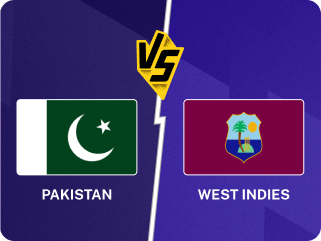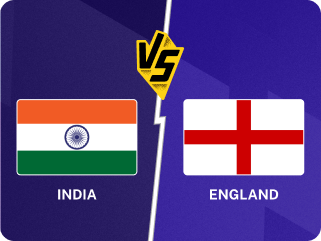
South Africa’s exit from the 2022 T20 World Cup, whilst an upset, has a familiar feel to it.
The Proteas have a well-known habit of crashing out of knock-out tournaments from positions of strength (whatever you do, don’t use the C-word) which dates back to their infamous first World Cup campaign in 1992, where rain cruelly denied them against England. In 1999 there was that dramatic tie against Australia, a bat dropped in the middle as carnage played out. In 2003, it was rain once more, a confident block before the rain came leaving South Africa tied on Duckworth-Lewis, rather than ahead by one run, after a miscalculation. In 2015 they secured their first World Cup knockout win, but more rain-affected heartbreak followed in the semi-final against New Zealand. Now, here we are again.
For any other country, such a disastrous campaign would trigger a complete overhaul in time for the next tournament. It happened for England after the fifty-over competition in 2015 and India re-booted the way they batted in T20s after last year’s group-stage exit. In South Africa’s case, however, from the looks of it, they already have a world-beating side, so to pinpoint where they went wrong is trickier. Is this simply the World Cup hoodoo rearing its head again?
On paper, South Africa’s side was arguably the strongest in the tournament. Rilee Rossouw has been in explosive form all year, David Miller is an awesome presence in the middle order and their fearsome foursome of fast bowlers is as threatening as anyone’s. Even Quinton de Kock seemingly found form at the right time from the start of the competition. Whilst it is possible to pick holes in every side in the competition, South Africa’s is arguably the most complete and all-around intimidating.
Their strength was shown in their first outing of the tournament against Zimbabwe. However, that game also contained the seeds of their eventual demise. After the bowlers reduced Zimbabwe to 19-4 in a reduced innings, de Kock set about chasing down the total in record time, trying to beat the rain that was fast closing in. Had two more overs of South Africa’s innings been possible, they would have taken two points from the fixture. Indeed, with de Kock on 47 off 18, they might not have even needed two overs to reach their target of 80. But, despite the best effort of the umpires, the match was abandoned giving South Africa one point from a fixture they were on course to win rather than two. Whilst frustrating, it was not tournament-ending. But the point lost would have a part to play.
Pakistan’s horror start to the competition meant they were still on zero points after their first two games, and left the door open for South Africa, despite the washout against Zimbabwe. It was clear before the tournament that one of India, Pakistan and South Africa from Group Two would miss out on semi-final qualification. After their defeat to Zimbabwe, that looked likely to be Pakistan.
South Africa’s victory against India only increased that probability, as they now only needed to beat one of Pakistan or Netherlands to secure qualification.
Temba Bavuma’s form was South Africa’s main concern at that point in the tournament. Under immense pressure following a prolonged run drought, his innings of ten off 15 against Pakistan was the first time he had reached double figures in a T20I innings in eight attempts. His strike rate was also worryingly low compared to the explosiveness of the other batters in the side, Rossouw having hit his second T20I hundred in a month against Bangladesh and Reeza Hendricks looking an attractive option on the sidelines. However, given his team’s success early on in the competition, there was no imminent need to replace him and South Africa could seemingly take the advantage of his captaincy without suffering too much with the bat.
After reducing Pakistan to 43-4, once again, South Africa’s qualification path looked safe. But, a period of chaos at the end of Pakistan’s innings was the start of South Africa’s campaign unravelling. Shadab Khan’s brutalisation of Anrich Nortje, smashing him for consecutive sixes in a 20-ball fifty, meant Pakistan were able to post 185-9 with rain once more closing in. Once de Kock was dismissed at the end of the first over with just a single run on the board and Shadab claimed two wickets in three balls, the match was gone for South Africa.
Having removed Pakistan’s top order so early on, South Africa should have won the match. But, again, it was not a tournament-ending moment. A victory over Netherlands would give them an insurmountable points difference to Pakistan, and a shock Zimbabwe win over India would have even seen them finish top of the group.
But Netherlands showed what should be the biggest takeaway from this tournament: the ‘minor’ cricketing nations can beat anyone on their day, and are not to be underestimated.
South Africa started poorly, Bavuma opting to chase on a wicket that proved more difficult to bat on as the match progressed. The bowlers looked far from their terrifying best and Stephan Myburgh and Tom Cooper were able to take advantage. While 158 shouldn’t have been a particularly intimidating total, South Africa weren’t at the races.
There was no dramatic collapse or complete capitulation; the Netherlands were just the better side, Roelof van der Merwe’s stunning catch summing up his side’s day and Aiden Markram’s frustration after clipping the ball to cover summing up South Africa’s. It was Netherlands’ greatest-ever victory and another disappointing end for South Africa in a World Cup. Mark Boucher’s assertion that an early 10:30 am start was a contributing factor to the defeat demonstrates how at a loss he is to identify what went wrong for his side.
South Africa, could and should have been in the semi-finals. The no-result against Zimbabwe, whilst unfortunate, was not tournament-ending. Bavuma’s form picked up, yet South Africa still lost the matches he performed in. They had two opportunities to qualify against Pakistan and Netherlands. They missed both of them, despite being on paper and probably in practice a better side than both. The only possible explanation is that they simply found a way to lose when it mattered once again.
Bet365 will be Live Streaming all of the T20 World Cup matches direct to your iPhone, iPad or Android device, as well as desktop. This means that every T20 World Cup








